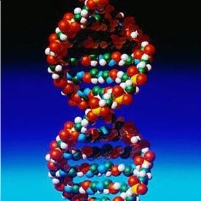Prosecutors Fighting the Use of DNA Evidence in Order to Save Face
Wednesday, November 30, 2011

Since DNA testing became available two decades ago, about 280 convicted felons in the United States have been exonerated of their crimes. In the process, serious flaws in the legal system have become exposed, including misconduct by law enforcement and prosecutors.
Today, despite the fact that genetic testing has proven itself to be a reliable means of determining innocence, some prosecutors continue to fight off attempts to free those wrongly convicted. In some cases district attorneys “have spun creative theories” to keep convictions from being overturned.
“They are attached to their convictions,” Brandon Garrett, a law professor at the University of Virginia, told The New York Times, “and they don’t want to see their work called into question.”
In one Florida case, prosecutors tried to explain away pubic hair found at the scene of a rape that didn’t belong to the man convicted of the rape by saying it may have been left behind by movers who carried the victim’s bed. In another case in Lake County, Illinois, Juan Rivera was convicted of raping an 11-year-old girl. Although sperm was found inside the child, it didn’t belong to Rivera. Prosecutors claimed that the child had consensual sex with someone else before Rivera raped her (without producing sperm).
-Noel Brinkerhoff, David Wallechinsky
The Prosecution’s Case Against DNA (by Andrew Martin, New York Times)
Prosecutors Fight DNA Testing (by Noel Brinkerhoff, AllGov)
- Top Stories
- Unusual News
- Where is the Money Going?
- Controversies
- U.S. and the World
- Appointments and Resignations
- Latest News
- Trump Orders ICE and Border Patrol to Kill More Protestors
- Trump Renames National Football League National Trump League
- Trump to Stop Deportations If…
- Trump Denounces World Series
- What If China Invaded the United States?






Comments